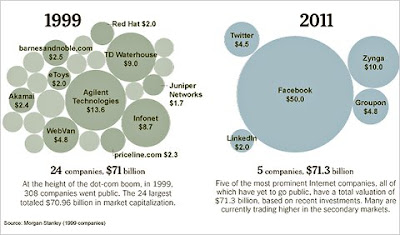The U.S. Department of Agriculture recently
approved the use of genetically modified alfalfa. I love the irony in this comment from an agribusiness spokesperson:
Critics of planting restrictions said they were concerned that the approach used in alfalfa would eventually be extended to other crops, causing restrictions on the growing of corn, soybeans and cotton, the vast majority of which are already genetically engineered.
“It’s like a Pandora’s box,” said Keith Menchey, manager of science and environmental issues for the National Cotton Council of America. Critics also said that the growing of alfalfa based on pollen drift concerns would undermine Washington’s efforts to persuade other countries to accept genetically modified crops. The Agriculture Department first approved the commercial planting of the genetically engineered alfalfa in 2005. But some environmental groups and alfalfa seed producers sued.
Mr. Menchey thinks that allowing the government to take action to prevent the unintended introduction of Monsanto's Roundup resistance genes into non-engineered alfalfa represents a Pandora's box problem, while I think the real Pandora's box is putting the gene in alfalfa seeds in the first place.
Unfortunately the government sided with Menchey and Monsanto. Sigh.
I WROTE my Representative, Earl Blumenauer, about the issue. Here is his response:
Thank you for contacting me with your concerns about Genetically Modified Organisms (GMOs). I appreciate hearing from you.
Experience has demonstrated that GMOs may pose significant risks to the existing food system. Seeds from genetically modified crops can migrate to neighboring fields or farmland, leading to the creation of monocultures which are dangerously vulnerable to disease and exposing small-farmers to potential claims of patent–infringement.
Furthermore, the potential risks to human health posed by GMOs are still poorly understood. A recent study published in the International Journal of Biological Sciences found that certain varieties of genetically modified corn caused long-term organ damage in rats. Offspring of rats fed genetically modified soy have also shown abnormally low birth-weights and increased sterility. And investigators in India have documented fertility problems, premature births, and other serious health problems among buffaloes fed genetically modified cottonseed.
Given the seriousness of these findings, it makes sense to proceed with caution when it comes to approving new or existing GMOs for commercial use. I have strong concerns about the deregulation of genetically engineered alfalfa, and I hope that Agriculture Secretary Vilsack will reconsider this decision. I have also expressed my concerns about genetically engineered (GE) salmon, specifically, to Food and Drug Administration Commissioner Margaret Hamburg, and hope the FDA will study this issue further to determine the environmental, ecological, and public health impact of GE salmon.
I strongly support mandatory labeling for foods that contain GMOs. Consumers have a right to this information, and I will continue pushing for stronger consumer protections when it comes to food safety.
Thank you again for contacting me about this important issue. Please continue to be in touch.
Sincerely,

Earl Blumenauer
Member of Congress
Labels: food, U.S. politics







